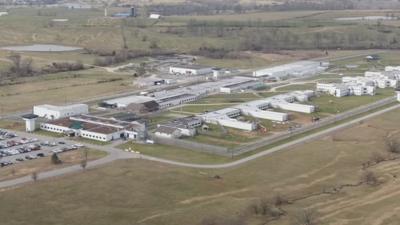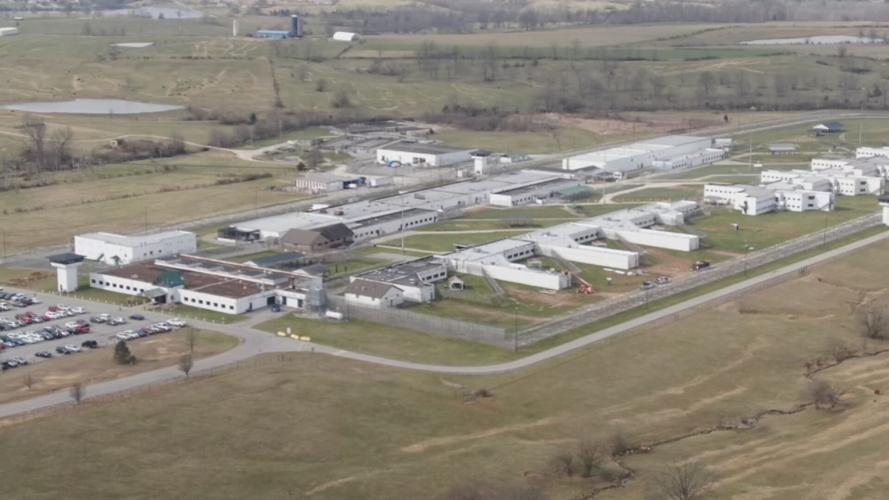LOUISVILLE, Ky. (WDRB) – As recently as this past summer, the wait for a defendant in Louisville to get a competency evaluation at Kentucky’s state-run psychiatric center was a year or more, leaving people jailed indefinitely and victims unsure when they would get any resolution.
Now, however, that wait is “half the time,” Jefferson Commonwealth’s Attorney Tom Wine said in an interview Tuesday.
Last August, an official with the Kentucky Correctional Psychiatric Center (KCPC) in La Grange said there was a statewide waiting list of more than 300 defendants, with a wait time of a year or more — up from about eight weeks before the COVID-19 pandemic. The waiting list had been about 80 people before the pandemic.
Officials with KCPC have been meeting regularly with the Louisville mayor's office, prosecutors, defense attorneys and representatives from the jail to find solutions, which have included doing the evaluations through teleconference or at the jail facility.
“We have reduced the number tremendously,” Wine said. “I’ve seen the backlog go down. It cuts down tremendously on the amount of time that it takes to take a case to trial."
Wine said some defendants were having to wait as much as 18 months before getting an evaluation to determine if they were competent for trial.
"Now they are going much more quickly," he said. "It gives us an opportunity to move those cases forward, helps reduce the jail population, helps bring closure to families" and gives defendants less time awaiting a disposition of their case.
Metro Department of Corrections Director Jerry Collins said the psychiatric center has begun working here and around the state to perform some evaluations through video conferences or sending psychiatrists to the facilities instead of waiting for space to open up at KCPC.
The result is a current waiting list of 35 inmates in Jefferson County who need on-site competency evaluations at KCPC, he said, a huge reduction from the previous backlog.
“That’s really good for us, really low for us,” he said in an interview. “We’ve done an excellent job lately since we started on-sites, with KCPC evaluators coming here, and telehealth for the last several months. We’re not behind at all.”
This is a drastic reversal from last August, when Jefferson Circuit Court Judge Annie O’Connell threatened to hold KCPC officials in contempt of court for repeatedly failing to follow orders to evaluate defendants on their competence to stand trial.
KCPC is the only facility in the state that can conduct mental competency evaluations for people charged with a felony, the most serious crimes.
Officials at the center have said employees aren't intentionally defying court orders. They claim there just isn't the necessary space and employees available.
A few weeks after the contempt hearing, KCPC sent letters to judges across the state acknowledging the waitlist had grown “extensively” due to several reasons, including staffing shortages.
The letter asked judges to “consider allowing the use of telehealth evaluations in your county, on a case-by-case basis, as it will help us to fulfill the court orders more quickly.”
O’Connell, who did not immediately return a message seeking comment, did not hold anyone with KCPC in contempt. The defendants in the cases she brought up during the hearing are no longer waiting for evaluations.
The rest of the state is not yet seeing the same backlog reduction as Louisville.
A spokesman for the Kentucky Cabinet for Health and Family Services, which oversees KCPC, said there has been a 10 percent reduction on the waitlist statewide, mostly attributable to telehealth.
Campbell County Jailer Jim Daley, president of the Kentucky Jailers Association, said, “I still hear complaints about it” from other jailers.
As for his jail, Daley said there has been some teleconferencing, but “I don’t know that (the backlog) is any better.”
Koleen Slusher, facilities director at the psychiatric center, told O’Connell during the contempt hearing that KCPC had been unable to take inmates because of coronavirus issues both in jails and at the psychiatric facility.
At the same time, staffing levels have plummeted, she said.
The facility can only evaluate about 30 defendants at a time, as compared to 78 when fully-staffed, she said at the time.
Slusher told O'Connell the center needs about 80 security officers but only had 30.
Copyright 2023 WDRB Media. All Rights Reserved.














